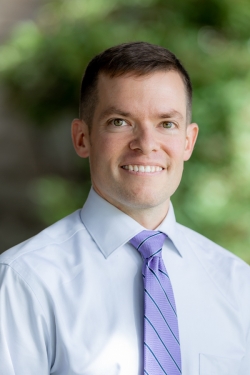/ News Posts / Words You Can Teach By
Words You Can Teach By
The Power of Words
By NAfME Member Matt Brown
This article first appeared in the October 2020 issue of Teaching Music.
A simple phrase or sentence can change your outlook on teaching and maybe even life.
The power of words and ideas goes beyond measure. Quotes have the ability to change life courses when taken to heart. Here are some simple phrases that have shaped my teaching life . . . some I have created, some well-known.
“Be positive.”
What does it actually mean to eat, breathe, and live positively? Thinking about this phrase and trying to change the way I act, talk, and teach to encapsulate this concept has changed me to the core. As a result, my students, friends, and colleagues know they can count on me to be a beacon of positivity, possibly seeing an optimistic outlook when others’ views may be bleak. This concept takes true grit and practice to pull off, but is well worth it. I am healthier because of it.
“Be the change that you wish to see in the world.”—Mahatma Gandhi (paraphrased)
This quote almost seems cliché, but our profession allows us to actually live this out on a day-to-day basis. Do students come into your class with a negative attitude? You get the opportunity to model how to talk positively. Do colleagues talk about specific students as though they can’t accomplish anything? You can be the person who reframes their speaking and helps them to see opportunity. Remember: Culture takes a long time to change, but it has to start somewhere. You can be the epicenter.
“Sit as tall as you can, as far forward as you can, as quietly as you can.”
While this phrase does not relate to every teaching situation or classroom, I say it to my students daily to remind theme of what good posture should be. They are in the driver’s seat as to whether they accomplish this goal, but I am at least setting my daily expectation. Do you have similar things you wish your students would do or assume they should already know? Surprisingly, even adults need reminders on some basic concepts. The more we remind, the more they will remember. What is it you want your students to do every day? Make it a daily mantra so they at least have it in their vocabulary.
“I will give myself grace.”
I have looked in the mirror and told myself this at times. While it may seem silly to talk to myself, it is easy in our profession to continually compare ourselves to others and worry that we are inadequate, not prepared enough, or any of a litany of things that keep us grinding our teeth. Grace starts with you and allowing yourself to be human. Sometimes our best efforts fall short of where we think we should be. Maybe a piece of music we handed out didn’t quite make the ground-shattering performance we thought it would. You can still make it a success by helping your students and parents see the educational and life lessons that were learned. As they say on airplanes, “Put your oxygen mask on first, and then help those in need.” Grace starts with you.
“We don’t make mistakes; we just have happy accidents.”—Bob Ross
Watching Bob Ross is intoxicating. In half an hour, he creates breathtaking and majestic paintings while also including deep philosophical lessons. I truly love this quote, as it reminds me that some of the best discoveries come from “mistakes.” Penicillin, a vaccine that saves many lives, was discovered as a result of someone leaving a petri dish open overnight. Aren’t we thankful for that mistake! It can be extremely rewarding to allow for the possibility that your mistakes, and those of your students, may take you on a better journey.
“Laughter is the shortest distance between two people.”—Victor Borge
Smiling and laughing are healthy things to do. The simple act of smiling sends endorphins to your brain and can lower your heart rate. Do you have a student in your class who is acting every day in all the “wrong” ways? We all do! Have you ever given that student your smile and told him or her, “I’m glad you are here”? Guess what: You could be the first person who has ever told them that. With persistence, the act of smiling or sharing a small conversation with these students can go a long way. Practice taking a deep breath, smiling, and saying those words. While you might not see immediate results, they might come down the road.
“Do you have a student in your class who is acting every day in all the ‘wrong’ ways? . . . Have you ever given that student your smile and told him or her, ‘I’m glad you are here’?”
“Just be chill.”
So many of my young students come into my class amped up about the myriad of things going on in their lives—so much so that it can sometimes hinder the act of creating music. Our job is to help students to best reach the amazing content that is music. Now, more than ever, we need to help students find that calm place so they can access the learning in a meaningful way. For some classes, this means actually practicing coming into the room calmly, practicing extended breathing, and sometimes finishing or starting the class by watching Bob Ross videos. Teaching our students to find their chill might be one of the more important things we teach. I hope to be the steadfast calm in others’ lives. If you have the same wish, it is never too late to start.
“What you spend years creating, others could destroy overnight. Create anyway.”—Mother Teresa
Sometimes it may seem that we have parents, students, administration, and the community against us. Build your program anyway. Changing even one student’s life through music is worth it. Only you have the vision and courage to build and create your program. Continue to build!
“Music for music’s sake.”
There is so much scientific and anecdotal evidence about the positive effects that music has on the brain and the body. Even so, we all know the main reason that we are teaching music is for music’s sake. To put it simply, a life with music in it is better. As you talk to students, parents, teachers, administrators, and community members about your program, make sure this is front and center.
Thank you for the opportunity to share my words. Have fun navigating the beauty of teaching music.
About the author:
 Matt Brown (mbrown@manson.org) is the Small Schools Curriculum Officer at the Washington Music Educators Association. He teaches middle and high school music and fine arts.
Matt Brown (mbrown@manson.org) is the Small Schools Curriculum Officer at the Washington Music Educators Association. He teaches middle and high school music and fine arts.
Did this blog spur new ideas for your music program? Share them on Amplify! Interested in reprinting this article? Please review the reprint guidelines.
The National Association for Music Education (NAfME) provides a number of forums for the sharing of information and opinion, including blogs and postings on our website, articles and columns in our magazines and journals, and postings to our Amplify member portal. Unless specifically noted, the views expressed in these media do not necessarily represent the policy or views of the Association, its officers, or its employees.
October 20, 2020. © National Association for Music Education (NAfME.org)
Published Date
October 20, 2020
Category
- Lifelong Learning
- Social Emotional Learning
- Teacher Self Care
Copyright
October 20, 2020. © National Association for Music Education (NAfME.org)





